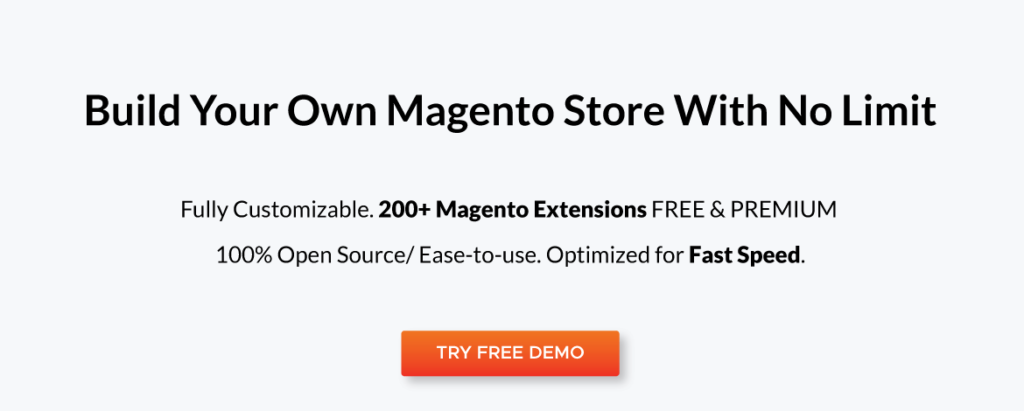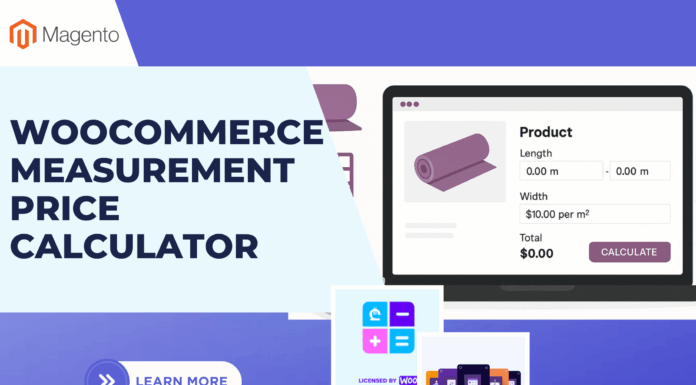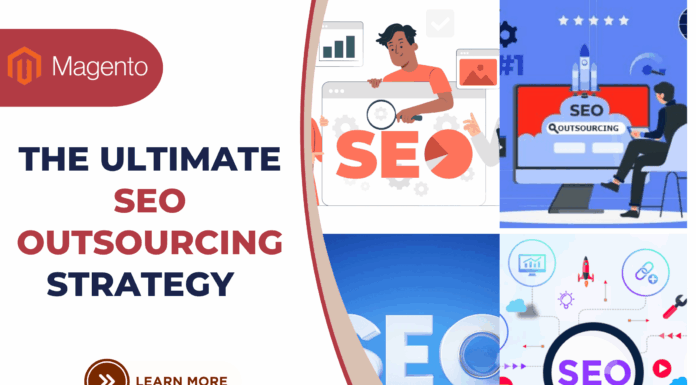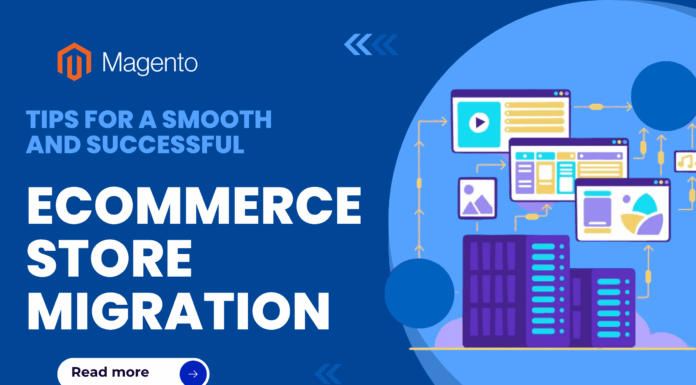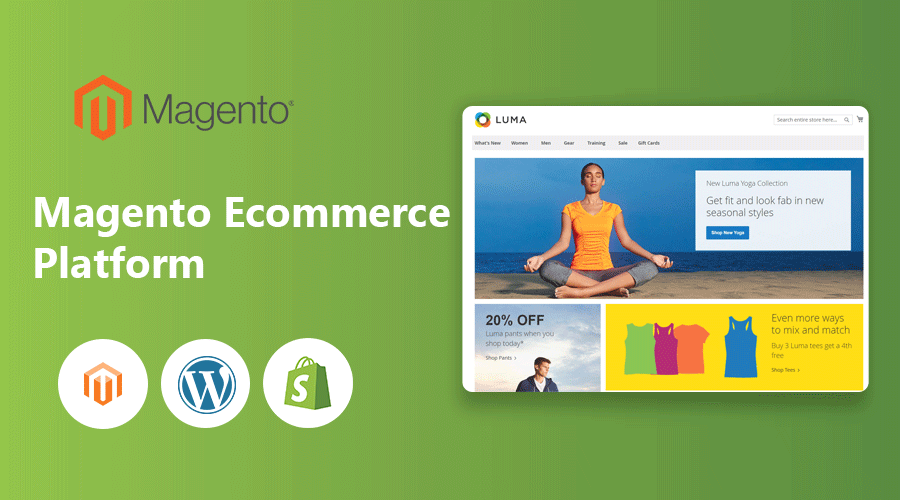
Magento Ecommerce platform will be your smart choice if you are looking for the best ecommerce platform. In the market, you may have thousands of platforms to build an ecommerce store and you don’t know how to choose it. In recent years, the number of businesses which use Magento has increased drastically. The Magento platform becomes more prevalent and seems the best solution to launch an ecommerce business.
Since the time released, Magento hit a big number of merchants and users who trust Magento Magento (included big brands also) who are operating their business using Magento such as Ford, HP inc, Nike, and so on.
With the impressive number of users and merchants, Magento becomes the best solution if you want to build an ecommerce website. But for any platform, there are always both advantages and disadvantages. You should consider balancing your desire, your competence, and money. You can choose a suitable platform for your business.
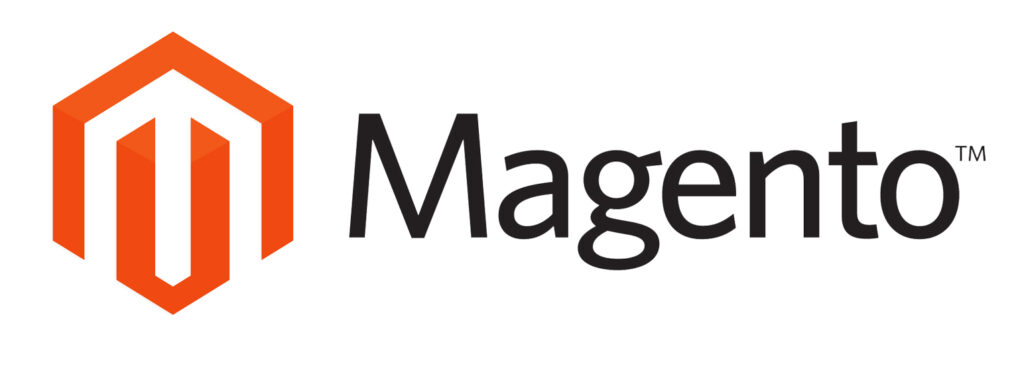
Table of Contents
I. Magento Ecommerce Platform vs other Ecommerce Platform – Which is the best platform for Ecommerce
1.1 What is Ecommerce Platform
An eCommerce platform is a platform software application where both selling and purchasing activities take place online. You can manage all orders, products, payments. It’s an online shop that helps consumer discover products and shop by using cart and checkout online.
There are 4 types of eCommerce. They are B2B, B2C, C2C, and C2B. Depend on your own plan, you can choose a suitable eCommerce for you.
- B2B (Business to business): Goods and services are sold from one company to other companies
- B2C (Business to Consumer): A business sells products/services to a customer. It’s one of the most common eCommerce types. Like a store sells products/services to consumers as a retails
- C2C (Consumer to consumers): eBay & Amazon are some of the best examples of this Ecommerce type. Consumers sell their products directly to consumers via the marketplace.
- C2B (Consumer to Business): It’s a consumer-to-business model where a consumer or end-user provides a product or service to a business organization.

In the digital era, online business is constantly developing. Each platform has its own strength, so it’s hard to decide which is the best or highlight it outstanding when comparing among eCommerce platforms. This explains why the competition grows stronger and stronger in the eCommerce software market. There are plenty of eCommerce platforms you should consider, compare and choose a suitable one. You should have knowledge about the eCommerce platform before making the final decision.
Ecommerce platforms include Magento, WordPress, Prestashop, Joomlart, Shopify, BigCommerce, etc. Each eCommerce platform has a different configuration for its function. They have their own unique stunning outstanding features. Some eCommerce platforms are easier to install, while others will require advanced technical settings. But there are always advantages and disadvantages. You have to compare and choose the best solution for you. Because something is not easy and needs to be exchanged to be worth your effort.
Here are some statics about Ecommerce Platform in the market share 2020:
- Magento: 20.4%
- WooCommerce: 31.14%
- Shopify 35.46%
- Opencart 3.39%
- Prestashop 3.27%
- BigCommerce 2.98%
- Wixx: 0.97%
- Others: 2.4%
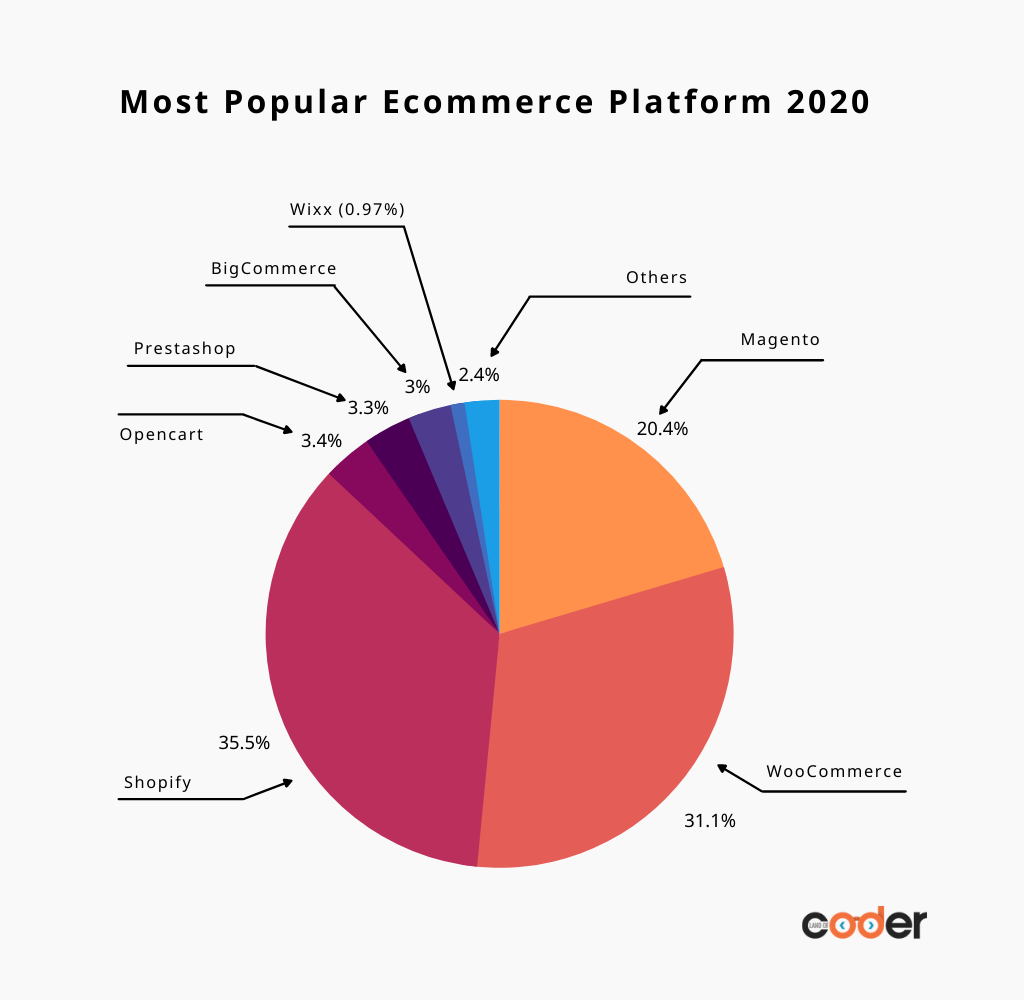
1.2 Magento Ecommerce Platform? Should Consider or Not?
Magento Ecommerce platform? Is it worth with your business investment? Let’s see!
There are a lot of factors that you should analyze carefully. Here are mainly 3 parts every ecommerce solution contains:
- User Interface
- Backend features
- Platform Framework, from server and storage solutions, devices, and network components
There is too much technical knowledge? Don’t worry about this. We are here to help you and make it super simple. Before determining what is the best option for you, you can take a look at our blog about overview eCommerce platforms, compare them and choose it. In this blog, I will choose Magento as a platform and I will compare it with others to help you have a great understanding of it.
Comparing with other eCommerce platforms, Magento has competitors as CE (Magento Opensource), WooCommerce/WordPress, PrestaShop, Shopify, and OpenCart, etc
II. Magento eCommerce Platform Reviews
Magento is developed on Zend Framework by Varien in 2008. It’s an open-source platform built with PHP which programmers can create their eCommerce websites. From 2008 to current, Magento gains hundreds of thousand of businesses and retailers who trust and using Magento to build their online shops and run their businesses online such as, Nike, Samsung, etc.
For quick reviews about Magento, there are 2 versions of Magento. They are Magento CE ( Community Edition) and Magento EE ( Enterprise Edition). What are the main difference between Magento CE and Magento EE?
2.1 Magento Reviews: Full Comparison between Magento CE and Magento EE

Features | Magento CE | Magento EE |
1. Name | Magento CE comes with name Magento Opensource. | Magento EE comes with name Magento 2 Commerce |
2. Pricing | Magento CE is free download. You don't need to pay any additional fee to get update version and launch business | Magento 2 EE is a paid Magento version. You can get a huge of advanced features for Magento and is charge by Magento license costs. The cost is calculated: Magento 2 EE Pricing = Magento License Cost X Percentage x Revenue |
3. Features | Magento CE is used for small and medium shops. Its features are integrated checkout, sale abilities worldwide, product catalogue management, mobile/tablet optimization of templates, access to module marketplace and purchases that are quick as well as site search. | Magento EE has more features than CE. It includes powerful and has outstandingly systems with high level performance, reporting and scaling functionalities.
|
4. Security | Magento CE is not available features for credit card tokenization or advanced payment security. | Magento EE version has a credit card tokenization or advanced payment security. |
5. Scalability | Magento CE is suitable for small businesses. Your magento store can manage products totally upto ~100,000 – 200,000 products. If products are reach upto 400,000, you should probably hire a developer to help you. | Magento EE is bigger business, handling 3.5 million page views and 250,000 orders an hour. It allows checkout speed and order management for online shops with large numbers of orders and transactions. |
6. Marketing | Magento 2 Open source supports marketing feature such as alt tags, meta descriptions, and custom URLs. | Magento Commerce has more features: built-in advanced content staging, sophisticated attribute-based customer segmentation, targeted content, abandoned cart reminder emails. |
7. Support | No support of the Magento team for merchants | Have the support of the Magento team for merchants with 24/7 technical support, account manager, access to quick-built Express Packages. |
2.2 Highlight features of Magento eCommerce Platform – Magento eCommerce Features Reviews
As the static of Techliance report about Ecommerce market share, Magento becomes one of the three popular Ecommerce platforms that merchants use for their business. There are hundreds of thousands of businesses including big ones like Nike, Samsung, … using this open-source to start their online store because of a huge range number of outstanding features Magento have.
Proved to be an amazing Ecommerce platform, Magento already comes with a series of powerful features, security and marketing. Thanks to support of both OOP and MVC architecture, Magento becomes more helpful with web development. Here are all astonishing Magento Ecommerce Platform Reviews Features
- Magento Inventory management

Magento inventory management feature allows various modification to manage products which are in-stock or out-of-stock. For example, you can easily change the minimum and maximum quantities number when check on backorder of item.
Besides, Magento inventory is the automation for making shipping and tax calculations. It gives to admin a full of control on stock, easily manage all product in stocks, assigns unlimited product attributes or moderate product tags and reviews to maintain your website. Using Magento, you can link a huge range of sale channels like eBay and Amazon marketplace. That’s a great Magento integration when Magento inventory is synced with the website. It’s the best solution for the out-of-stock products.
- Order Management

Admins have full permission on order management: View, edit, create, and fulfill orders and/or invoices
from the admin panel. Also, they can create multiple invoices, shipments and credit memos per order to allow split fulfillment. Print invoices, packing slips, and shipping labels and enable customer service representatives to create orders and customer accounts, and update products and coupons in customers’ shopping carts and wish lists.
- Product Browser
Magento support multiple images per product, product image zoom-in capability, related products and upsell, stock availability, multi-tier pricing upsell, selection of product options, grouped products views, add to wish list, send to a friend with email or share Facebook also.
- Catelog Management
The Magento features are available in catalogs: Filter products in categories and search results by price
range, brands & color swatches, and attributes with layered navigation, gird/list view product category items, view product comparisons with history, display a recently viewed products module, add breadcrumbs, define search synonyms to expand search results and add a popular search terms cloud.
- Optimized for mobiles and tablets

Magento is built, deployed, and optimized progressive web apps (PWAs) quickly and cost effectively with PWA Studio. It’s friendly on mobile and other devices in both version of Magento. Site Magento can be friendly and adjust automatically on any devices such as laptop, desktop, Macbook and mobile.
- Checkout, Payment & Shipping

Magento supports 1 page checkout, use guest and registered user checkout. At beginning of checkout, you can add an option for account creation.
There are multiple features for shipping: Ship to multiple addresses in one order, show tax and shipping estimates in the shopping cart, specify allowed destination countries based on shipping method, flat rate shipping per order or item, table rates or free shipping. Magento is also integrated shipping with label printing for all major carriers. It supports a real-time shipping rates from UPS, UPS XML, (account rates), FedEx (account rates), USPS, and DHL
Magento is integrated with multiple PayPal gateways, Authorize.net Checkout, Payment and Shipping. It accepts checks and money orders, select PayPal credit as a payment option. Magento system can be saved credit card method for offline payments.
- API for web services

To communicate between web services with the Magento system, Magento web API framework provides integrators and developers. It can be used to perform a wide array of tasks. It supports for both REST (Representational State Transfer) and SOAP (Simple Object Access Protocol).
- Built-in multilingual support
Magento supports for multiple languages and currencies. Ease of integrate Web Services API with Magento and third-party applications. It also supports for localization, multiple languages and RTL text, multiple currencies and tax rates.
- Multistore & Global Solution
Magento serves all customers from business and consumer via Ecommerce channels. It’s so useful for multistore and global solution.
- Search Engine Optimization
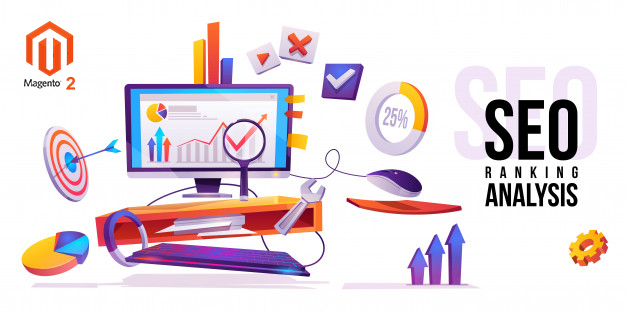
Magento system automatically generate a Google sitemap, take a full controls of URL rewrites and create friendly URLs. It also supports meta data for products, categories and content pages.
- Marketing, Promotions, and Conversion Tools

In Magento Ecommerce platform, users can get powerful marketing and promotional tools. Users can set relate products, up-sells and cross-sells, specify discount for store, customers groups, time periods, product and category. Also, they can export codes for offline distribution, email, newsletter.
- Analytics and Reporting
Thanks to great integration with Google Analytics in Magento, admin can see the report on dashboard with report overview, sale report, tax report, abandoned shopping cart report, best viewed products, best purchased, low-stock, tags report, coupon usage report, total sale invoice, total sale refunded, etc.
Source: Magento feature lists
2.3 Why Choose Magento Platform for Your Business Ecommerce
With Magento, you will get a large number of powerful features for shop and self-host for your website. Here are all outstanding features of Magento:
Advantages & Disadvantages of Magento:

Features | Advantage of Magento Ecommerce | Features | Disadvantage of Magento Ecommerce |
1. Ease of Customize | Magento is an open source platform. There are 2 types of Magento: Magento CE & Magento EE. It’s free for CE and paid for EE. But, don’t panic. For recent research statistics, there are a large number of merchants and retailers using Magento CE, Magento doesn’t have limit any modification | 7. Complexity | You know, Magento is used for both small, medium and large business with a lot of products and features. The store system requires a large and complex structure. So, to build an online store effectively and smoothly, your shop will need a strong and professional teams of developers and testers. |
2. User Friendly | Magento is optimized and ready for user friendly. No need for any effort or cost to hire a developer or add any line of code. It’s friendly for both admin and users. Magento is friendly for both users and admin. Without technical knowledge, the admin area is designed to be easily accessible. You are able to find a suitable piece of your website yourself. | 8. Cost of development | Because of a big site, you have to invest a lot of money, time and efforts on website development , operation and maintenance. In addition, version CE is free. EE is paid version. |
3. Scalable | It’s undeniable to say that Magento is suitable for medium and large company. It’s perfect ecommerce platform. The biggest advantages of Magento ecommerce platform is perfectly a large scale business system. | 9. Time | Customisation of Magento stores takes longer than customisation of other eCommerce platforms. |
4. Flexible | Magento platform allows to display your web pages any way you want and customize the product, category, sales, and content pages with the WYSIWYG page builder. You can create a flexible content for website. | 10. Hosting | Because of a large of hosting and space to share server, the website speed maybe affected. So if you want to spend your budgets to optimize website speed, it will take your time and certain portion of money. |
5. Mobile friendly & Search Engine | All shopping carts are developed responsively on any devices screens. Website will seamlessly viewable on smartphones, tablets, and other mobile devices. Also, Magento platform is built with friendly SEO to better rank on search engines. | 11. Magento Themes & Design | Magento doesn’t offer customization design. Need to use a third party plugin. |
6. Easy Third-party Integrations | Magento is easily integrated with other third party extension in order to better your website experience. But this process needs developers. | 12. Magento Extensions | Default Magento platform supports only basic features, if you want to enhance user experience and increase conversions, your shop needs to install extensions. They make your Magento site more unique and optimized. |
III. Magento Ecommerce Platform with Other Ecommerce Platforms
In digital edge, online business are spread over the world strongly. There are a lot of Ecommerce platforms you can choose. Each platform has their own strength and it causes a high competition in the market. Magento ecommerce platform is one of them. Let’s see detail comparison of Magento with its competitors such as WordPress, Shopify.
3.1 The Same Points Between Magento with Other Platforms
Both of them are open-source eCommerce platforms, and no matter what you choose, you’ll get benefit in both cases from technical support from large communities. Thanks of full optimization, all store built with Magento or other opensource platforms are available unlimited customization. There is no limitation of modification. You totally can build your website more beautiful, better customers experience on the website. Moreover, both Magento, WordPress and Shopify also support a powerful content managements, huge storage & security and a friendly support. They are the most favorite benefits that persuade many people trust and use theme to build their store.
3.2 Difference Features between Magento vs Other Ecommerce Platform
See all difference features of Magento platform with other platforms:

Features | Magento | WordPress | Shopify |
1. Outstanding features |
|
|
|
2. Cost of development | High Cost | Lower cost | Provide many business packages |
3. API payment system integration | Open API system | Limited API system | Open API system |
4. Extensions | Ready to expand | Limited in scalability | Highly Scalable |
5. Storage and security | Big storage and high security with PCI certificate and security SSL support. | This platform is used the most on the website, so it is the object of frequent hacker attacks. Just a small security flaw can cause hackers to attack millions of sites. You can prevent hacker' attracks by installing plugins and advanced security configuration. | Shopify allows to add source code if you want. You can get free domain to set up website but it will cost a lot of monthly maintenance fees. Also, Shopify support SSL certificates for your website, have automatic backups, and be PCI level 1 compliant. |
6. Marketing | Magento provides interesting features for SEO marketing such as friendly SEO URLs, meta information, google sitemap, google content API to easily expand your SEO capabilities. | Optimize SEO according to Google's suggestions. | Shopify provides the basic features such as robots.txt file, sitemap.xml, canonical URL tags to avoid duplicate content, ... |
Final Words
With above information, whether Magento the right tool to launch your online store with or not? It’s not just a question. You can get your answers right way. There will always be advantages and disadvantages on each platform. The main thing is that you need to determine what the long-term direction, size, scale and purpose of your business is. I strongly believe that Magento Ecommerce Platform will be a great platform to build and launch your business ecommerce perfectly.





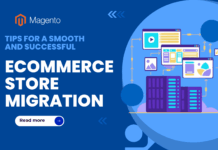

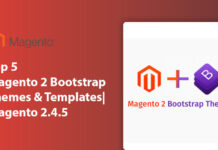



![[SALE OFF] Discount 30% All Premium Extensions On Christmas And New Year 2025 christmas-and-new-year-2025](https://landofcoder.b-cdn.net/wp-content/uploads/2024/12/christmas-and-new-year-2025-1-218x150.png)





